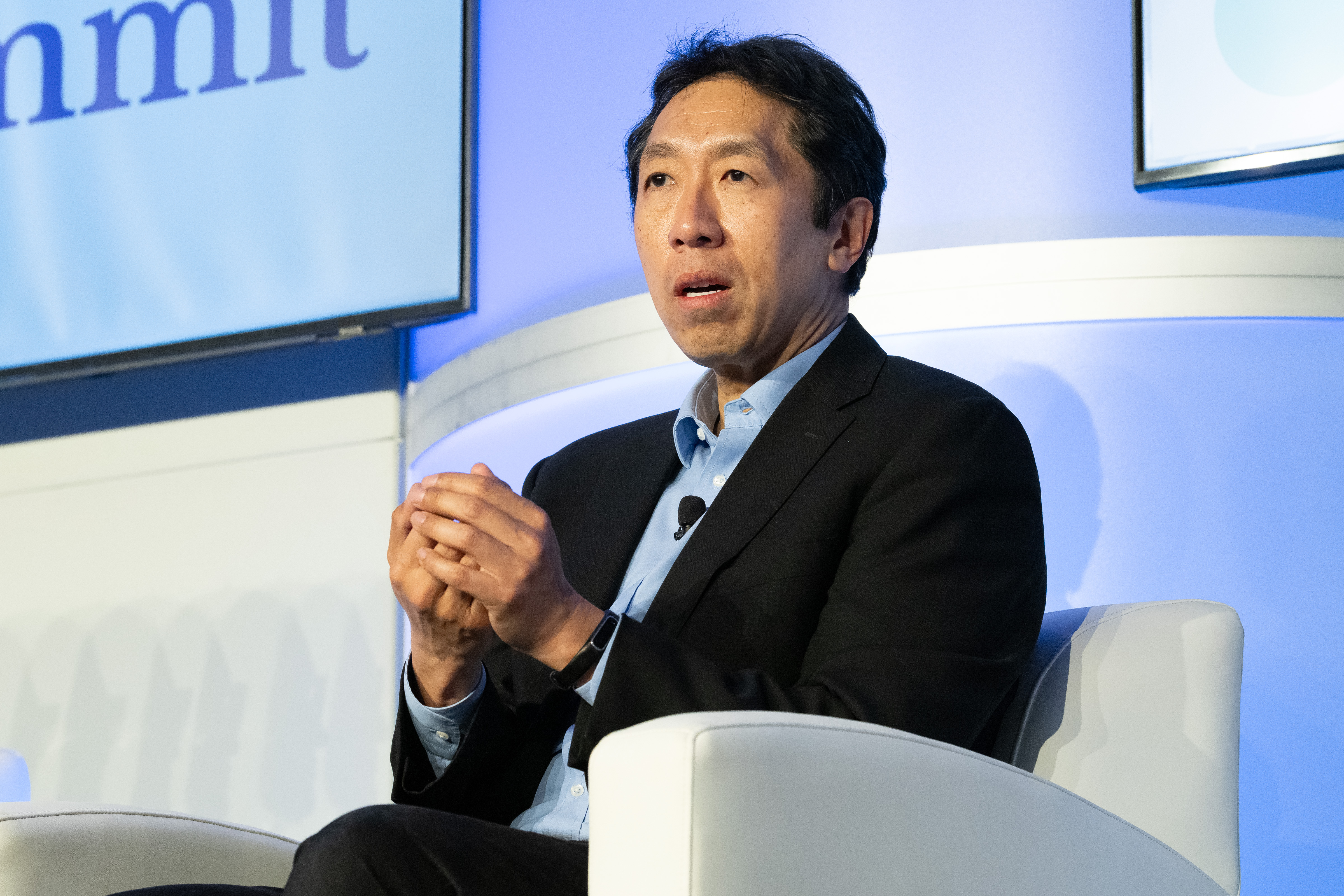Hype narratives have bolstered the fundraising of AI companies but have distorted the way people view the technology — leading to over-regulation and fear, says Ng.

A hype narrative around AI is damaging the industry, says Andrew Ng, founder of AI Fund, one of the recognised global pioneers in AI development.
Ng says a hype narrative put forward by companies to attract attention and investment is having counterproductive effects, causing fear and possible over-regulation of the sector.
“There is a handful of companies that have driven a lot of hype around AI to support their fundraising goals. One of those hype narratives is that AI is so powerful it will take everyone’s job. Another narrative is that AI needs so much power that only nuclear power is enough,” Ng told GCV on the sidelines of the GCVI Summit in Monterey earlier this month.
“I feel like these hype narratives to make a particular technology look really powerful has really skewed societal perception,” he says.
Over-regulation will result in monopolies and slow innovation
Misperceptions about AI lead to fear, he says, and this in turn leads to over-regulation of the industry. On stage at the GCVI Summit Ng warned that regulation of AI would only benefit a handful of the biggest AI companies while slowing down innovation for the majority.
“If I look broadly at a macro level, the net regulatory landscape is more harmful than it is helpful. I think the very basic reason for this is there have been a handful of companies that spent billions of dollars training large AI models. They are scared of having to compete with open source software,” he said. “Driven by their economic incentive, over the last couple years, the lobbying efforts companies to create regulations to stifle AI innovation has been intense.”
Lobbyists’ arguments have ranged from concerns that AI could create bioweapons to Chinese AI models posing a national security threat.
But, says Ng, AI regulation is unlikely to increase security and instead will help keep a handful of the largest AI companies in a dominant position, slowing down innovation.
Legislation, such as the EU’s AI Safety Act, signed last year, is a gift to large US AI companies, Ng said, because it will effectively keep their smaller competitors out of the market.
“[Executives at] one of the very large American companies told me, privately, ‘This is great, because we could be the only ones with resources to comply’,” he told GCV.
Similarly, he said, restrictions on US citizens using the open source AI models coming out of China, such as DeepSeek, would have the same chilling effect on competition.
“To try to ban Americans from using open source, open weight, Chinese models or other open models would be handing a monopoly to certain American companies on a platter,” Ng said.
The “kill zone” hype about AI is overdone
Ng says businesses should be careful not to let AI hype narratives put them off investing. One of the concerns among investors has been that fast-evolving AI models could suddenly make many of the startups they have invested in obsolete.
This was, for example, a warning from Jeffrey Li, managing partner at Tencent Investments, at GCV’s Asia conference in Tokyo at the end of 2024, where he warned that AI could be a “death sentence” for many startups.
A move from ChatGPT 3 to ChatGPT 3.5 did kill AI advertising writer Jasper, as customers realised they could now do for free what Jasper had been charging for, Ng acknowledges. But, he says: “The list of examples of foundation models becoming more powerful and wiping out startups is a very, very short list. I struggle to think of many more.”
This is another unhelpful hype narrative of AI, says Ng. “I think people fear the supposed kill zone of these companies much more than they should.”
Businesses have a real advantage in creating the application layer of AI, taking an AI model and adding to it the proprietary data that they hold. Most AI large language models are trained on public data from the internet. But this, Ng points out, constitutes only a tiny fraction of the world’s data.
“Think of all the things you write, including emails, a minuscule fraction ever gets posted on the public internet. Most of the world’s knowledge data is actually private data,” he says.
Hot new areas of business AI use
Ng, whose company AI Fund builds AI-based startups together with corporations, says most business leaders are starting to see past the hype and explore pragmatic AI use cases.
Far from being a tool to cut jobs and save on costs, he says, the most interesting AI projects are ones that lead to business expansion.
“Many businesses start off thinking about cost savings, but it turns out that the more interesting use cases tend to be when you can take a task that a human is already doing but automate it to do it 1,000 times more.”
For example, a retailer that used to monitor prices at five competitors will now be able to monitor prices at 500, leading to much more accurate price setting.
Ng says certain areas of AI, such as visual processing, have progressed much more than people have realised.
“The visual processing revolution is coming, and we’re seeing it already being used,” he said.
One of AI Fund’s startups that has a technology for processing PDF documents, for example, is seeing rapid growth.
Voice-based AI is also developing rapidly.
“It is much easier than it used to be to build voice-based interactions where you talk to the system,” says Ng.
One of the companies AI Fund has built to exploit this growing capability is a management coaching application which talks young managers through stressful situations, such as firing an employee.

Maija Palmer
Maija Palmer is editor of Global Venturing and puts together the weekly email newsletter (sign up here for free).








